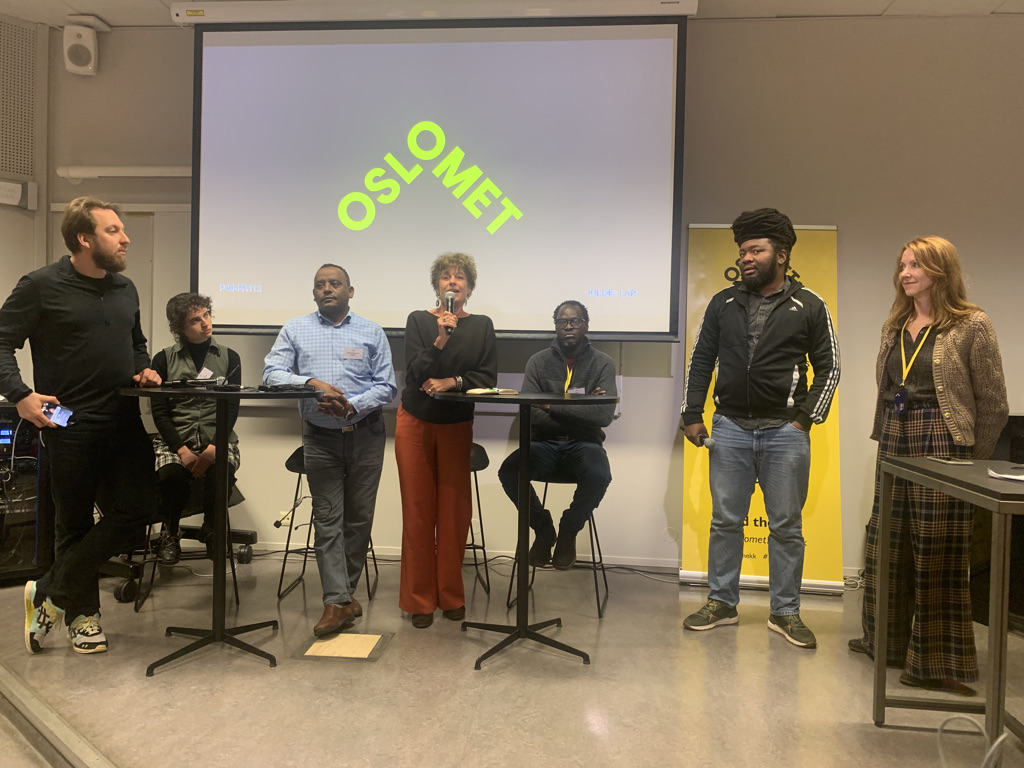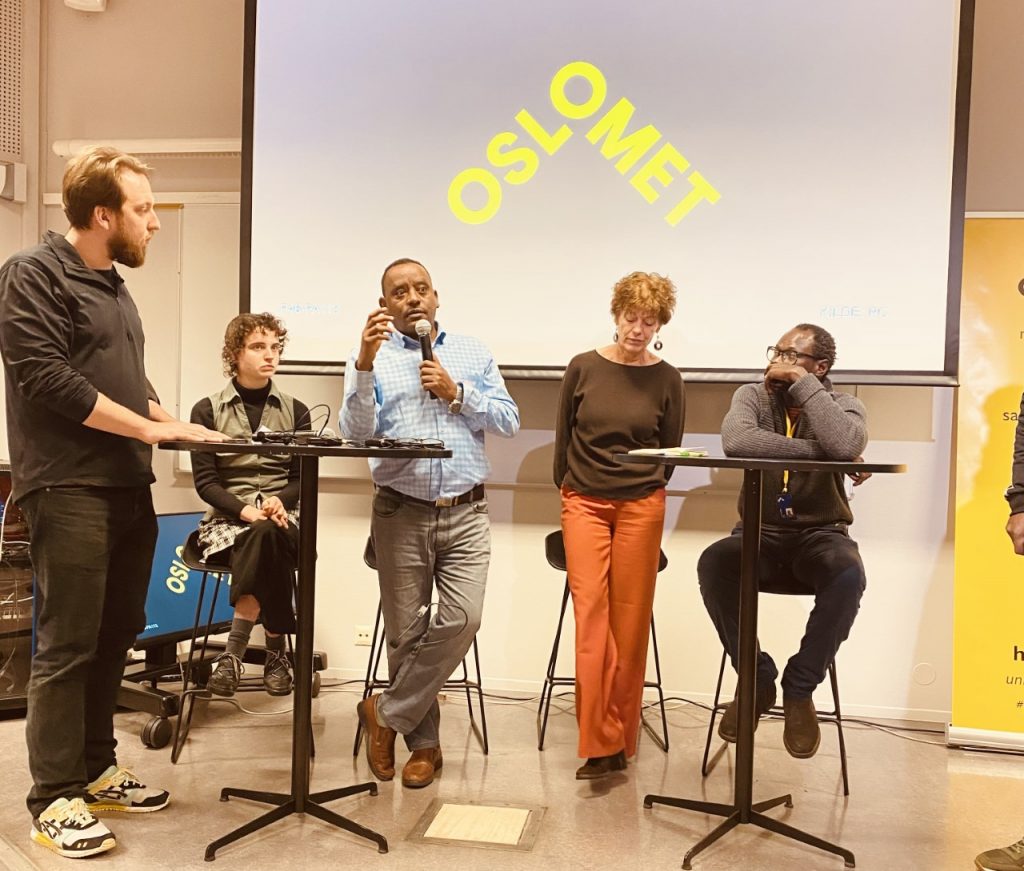By Theodorah Munisi, MA-student, OsloMet

A panel discussion by the DDMAC (Decoding Digital Media in African Regions of Conflict) research group on the 2nd day of the International Conference on the Safety of Journalists, explained to what extent the misuse of digital media and propagation
triggers the prolonged conflicts in some African countries like Mali and Ethiopia.
Making an account of the prolonged Malian conflicts, Mirjam de Bruijn, a professor and anthropologist on African studies, says there has been a trend of several influencers and public figures deliberately publishing unpleasing words, phrases, and hate speech on social media that leads to social divisions in the country.
Talking about the detrimental acts, Mirjam says some of the public figures get paid to use social media like Facebook and Twitter to publish hateful speeches and be part of the propaganda. In a long run, this makes the societies in Mali take sides in the conflicting groups and continue falling apart.
Reflecting on his experiences, Mulatu Alemayagu Moges a member of the DDMAC research group and also an assistant professor from Addis Ababa University says elites who are the agenda setters in the country have been writing many stories involving false information on Twitter about the Tigray civil wars. The profuse flow of such false information creates traumatic situations for civilians and creates distress.

Luca Bruls, a junior researcher at the DDMAC research group and a cultural an anthropologist explains how people use unique ways in social media like Twitter and TikTok to share false information and biased messages that stir up the conflicts in Mali. Luca says there has been biasing and false information published by people on Twitter that show their support towards the existence of Russian missiles in Mali while in reality a lot of civilians are dying.
The DDMAC research group has noted how digital communication has a severe impact both on how conflicts develop and how they are being mediated and how they reverse development progress in the African regions of conflict, thus they suggest that more
scientific studies should be done in the countries so as tackle the problem.
